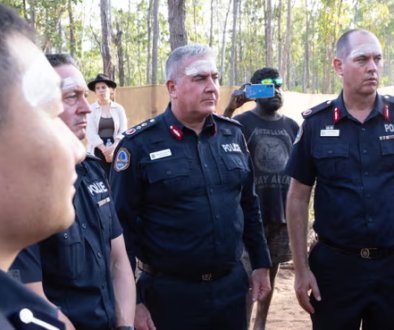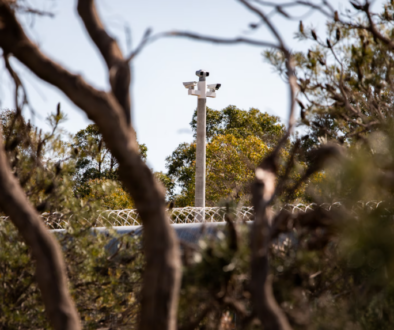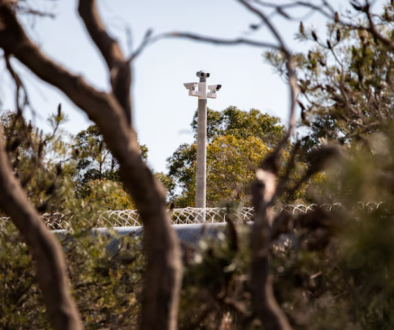Banksia Hill Detention Centre guards lack working with
children qualifications, union says
Key points:
-
The prison officers’ union says guards can use additional force on inmates.
- It says guards are at risk of violence and legal liability.
-
Neil Morgan says it’s a legal minefield.
Image: Giovanni Torre
The Department of Justice has been accused of allowing prison guards to work in youth detention centres without a valid working with children check.
More than 100 prison guards have worked at both Banksia Hill Detention Centre and Casuarina Prison’s Unit 18 in the past 12 months, due to a dire shortage of youth custodial officers.
Obtaining a Working with Children’s Check is a condition of undertaking shifts in youth custodial settings and a legal requirement for most people who work with children in WA.
But WA Prison Officers Union acting secretary Beven Hanlon said most guards asked to work at juvenile detention facilities did not initially have the relevant clearance.
Mr Hanlon said many union members were only recently asked to obtain it.
WA Prison Officers Union assistant secretary Beven Hanlon is worried about the legalities over the different qualifications required by staff. (ABC South West: Jacqueline Lynch)
“They’re told that they’re just going to essentially be response staff and assist when things go bad,” he said.
“But there are so few youth justice officers that are actually having to go in and be youth custodial officers (YCOs).
“There’s no questions on ‘do you have this qualification?'”
Clearance ‘not always needed’
The department did not answer the ABC’s question on whether every adult prison guard who worked in Banksia Hill and Unit 18 at some point over the past year had a valid check at the time.
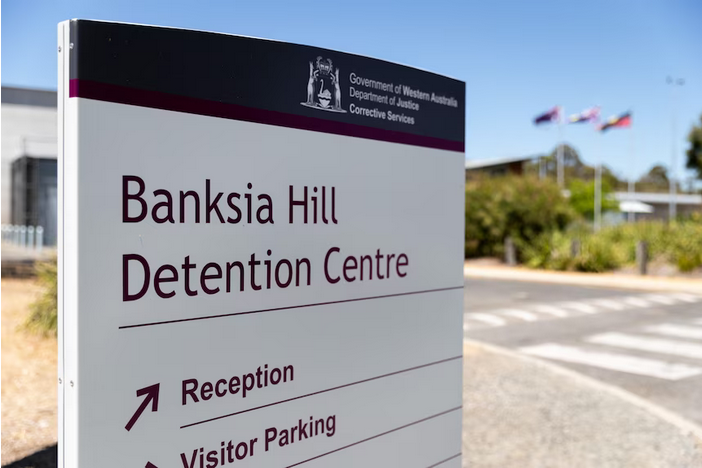
The department said prison officers do not need a working with children clearance to attend ‘critical incidents’ at Banksia Hill.(ABC News: Cason Ho)
Instead, a spokesperson said: “The function of prison officers in youth custodial settings is to assist YCOs.
“Where prison officers are required to attend the site in response to a critical incident, they do not require a clearance.
“Prison officers who regularly attend youth custodial settings on overtime or secondment all have working with children clearances in line with department policy and relevant legislation.”
Concern over use of force
Mr Beven recently sent a letter to Corrective Services, expressing the union’s concern over other legalities.
“It’s more than just the working with children’s checks for our members,” he said.
“The qualification you get as a prison officer is different to the qualification you get as a YCO.
“YCOs aren’t allowed batons or pepper spray. So they put prison officers there so that we can deploy those use of force options to keep control of the youth offenders.”
“We can’t get the Department of Corrections to agree to give our members a letter that confirms that they are covered under the Act to do that … they’re just refusing to provide it so far. It’s been over 12 months.”
Mr Hanlon has warned the union may be forced to direct its members to stop accepting shifts at the already understaffed facilities.
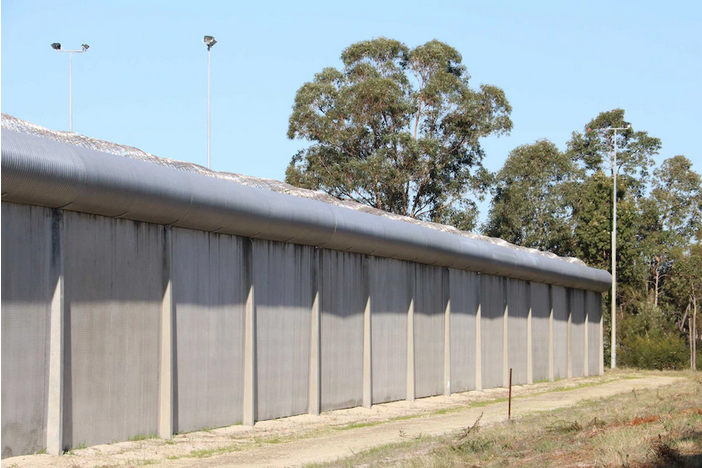
Banksia Hill Detention Centre has been plagued with troubles for years.(ABC News: Gavin Johns)
“They’re at risk,” he said.
“Both physically from the violence that’s in those places, but they’re also at risk professionally and personally for liability.”
‘Legal minefield’ warning
The claims come after a major riot at Banksia Hill last month, where inmates held authorities at bay for more than 12 hours.
Confronting vision showed armed officers on the roof moving in to quell the disturbance.
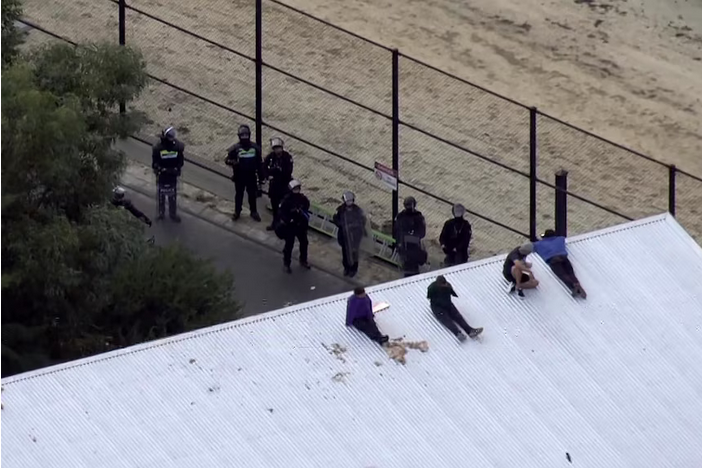
A group of detainees at Banksia Hill Juvenile Detention Centre in Perth on the roof of the building last month.(ABC News)
WA’s longest serving inspector of custodial services and former law professor Neil Morgan said adult prison guards should not be working in juvenile detention centres in the first place.
“This is a legal minefield, potentially,” he said.
“I would have thought all of the officers working in the proximity of those children should have a working with children check.”

Dozens, raising concerns about the treatment of detainees, rallied outside Banksia Hill Detention Centre on Mother’s Day this year following a riot at the facility.(ABC News: Kenith Png)
“Many years ago, they had a handful of adult prison officers at Banksia Hill working alongside the youth custodial officers, but they weren’t involved in the day-to-day management.
“My understanding now is that prison officers are involved very much in the day-to-day management of these young people.”
Now an emeritus professor at the University of WA, Mr Morgan had previously labelled the Banksia Hill facility as a “disaster”.
He said the latest revelations showed the depth of the staffing crisis. “It’s actually an admission of failure,” he said.
“They don’t have the staff. That’s the bottom line.”
The WA Prisons Union is the latest body to criticise the WA government’s management of the youth justice system.
“Until they actually take that step, get some people that are properly trained to work in there and deal with those things, we’re just going to create worse youth offenders,” Mr Hanlon said.
“We’re not giving them their time out of their cells, because we we don’t have enough (staff).
“So we have to keep them locked, which makes them frustrated and puts staff at risk.
“It’s a terrible frustrating cycle.”

